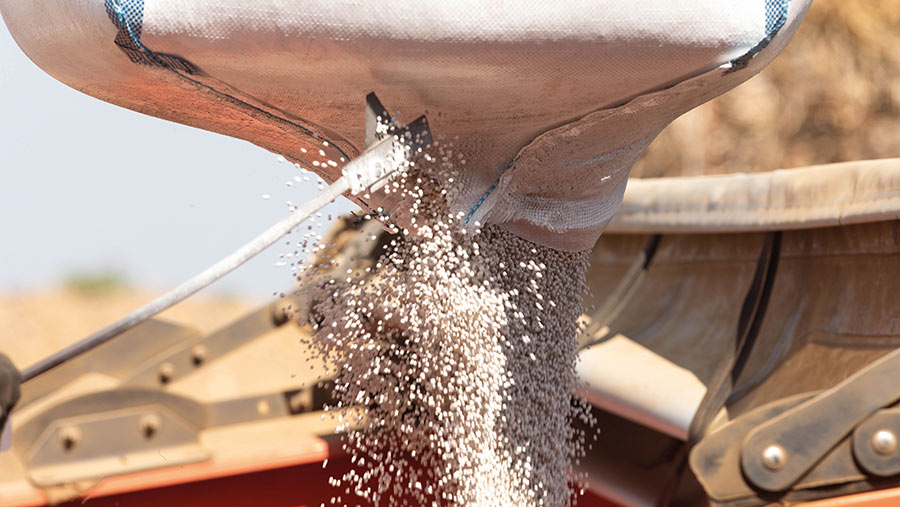Falling fertiliser markets drop as global gas prices fall
 © Tim Scrivener
© Tim Scrivener Falling global markets and gas prices are driving down UK fertiliser prices to the lowest levels in more than a year for some products, compounded by a weaker sterling against the US dollar in recent weeks.
In January, for example, granular urea fell by 20% on the previous month to £582/t, while UK-produced ammonium nitrate (AN) averaged £700/t delivered. Prices have reportedly fallen further since then.
ADM Agriculture said both imported AN and UK AN prices remain under some pressure, with natural gas prices in Europe and the UK now comparable to September 2021.
See also: Tesco to trial low-carbon fertilisers with five growers
China is also projected to increase its supply, which is likely to put some downward pressure on phosphate markets.
But, despite the falling prices for the past six months, fertiliser still remains at relatively high levels, and further developments in the war between Russia and Ukraine – with both sides reported to be preparing for a fresh offensive – have the potential to push prices back up.
Longer term, supply merchant Frontier is forecasting potential further weakness for both urea and AN products.
Huge shipment of fertiliser arrives in UK
The largest ever shipment of liquid fertiliser to come to the UK arrived at Brineflow’s new purpose-built terminal in Sunderland this week from the Americas.
Torm Australia, a 50,000t shipping vessel, arrived for the first time in the UK and is due to fill the 35,000t capacity terminal in Sunderland, as well as offloading more product into shipping tankers to be taken to a sister terminal in Great Yarmouth.
John Fuller, chairman of Brineflow, said the terminal enables British farmers to access some of the world’s lowest-cost fertiliser, whereas previously the UK was largely restricted to western European and Baltic production.
“Not only can we now get security of supply and diversity of supply, access for the longer term to these low-cost areas is important to maintain the competitiveness of British agriculture,” said Mr Fuller.
“Fertiliser is absolutely at the start of the entire food chain and there is a significant transition from solid forms of fertilisers to liquids,” he added.
